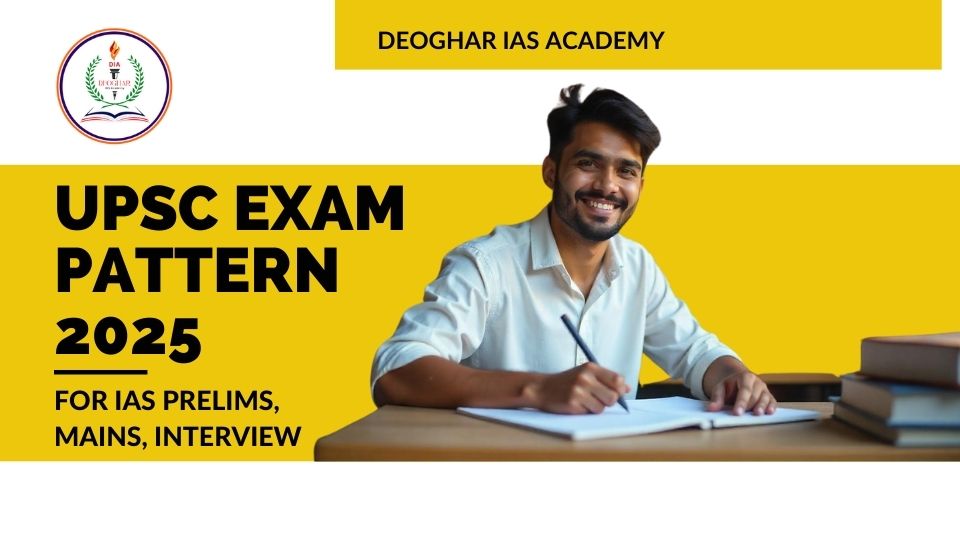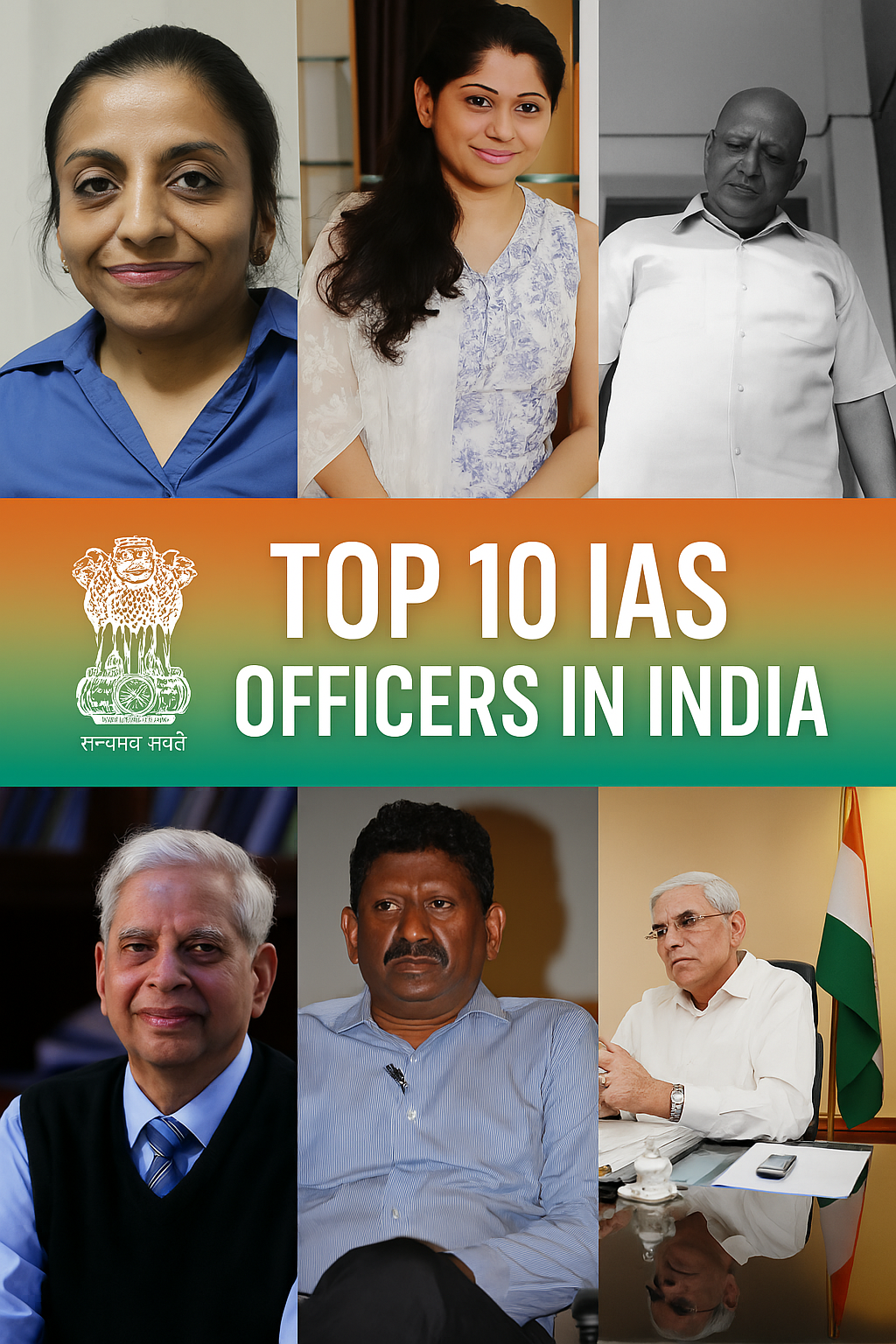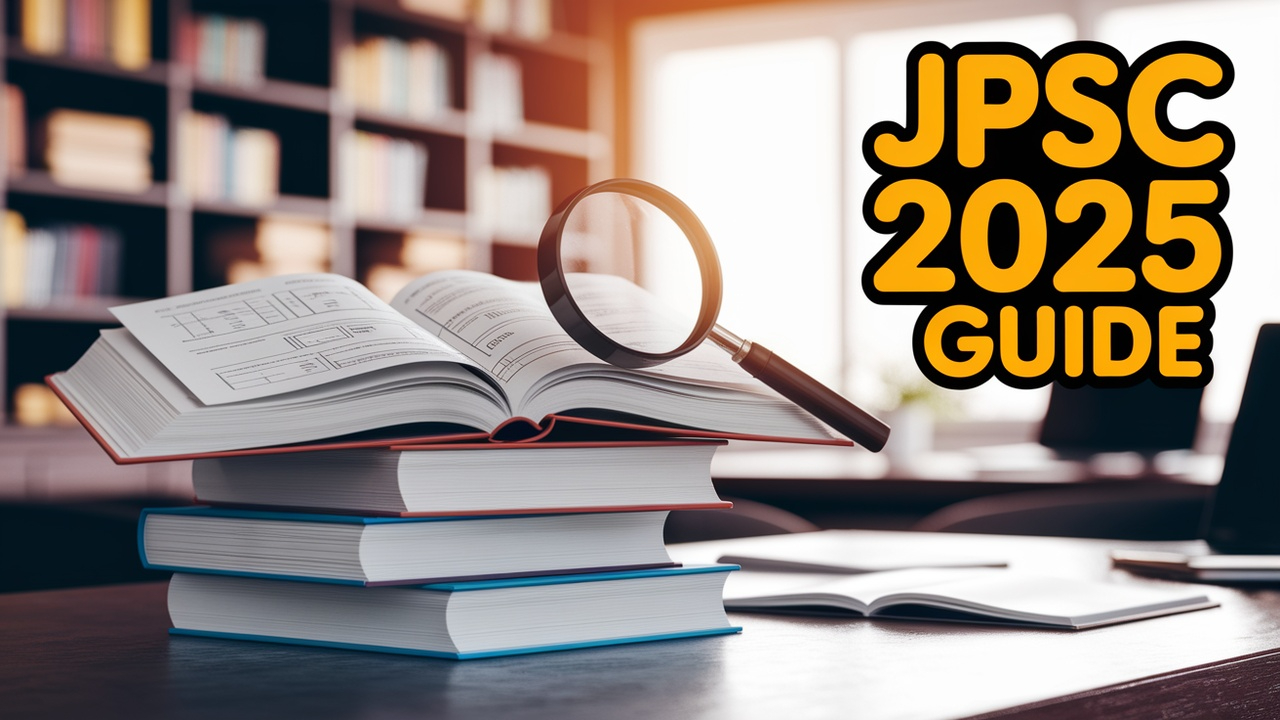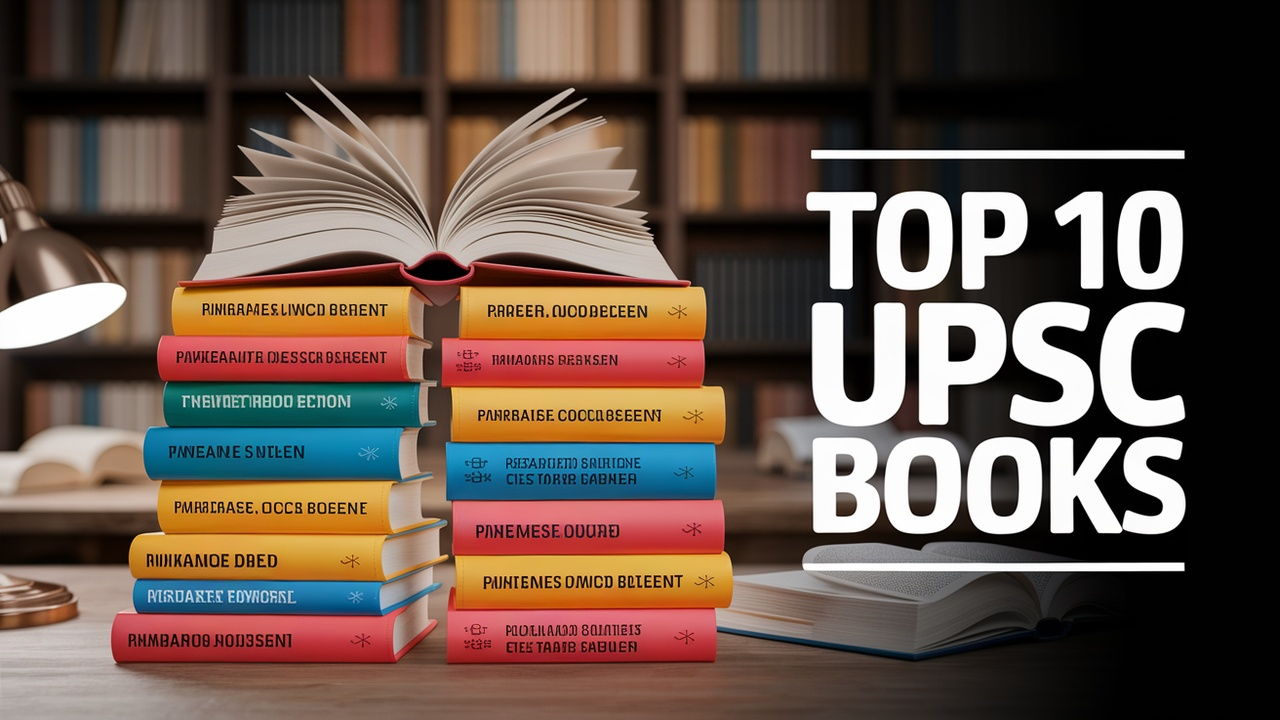The Union Public Service Commission is a constitutional body that recruits officers for All India Services and the Central Civil Services through exams. The Constitution mandates the commission for appointments for the services of the Union in India. It is also necessary to consult the Government in cases like appointments, transfers, promotions, etc. The commission reports directly to the President.
- A student must be updated with the syllabus as staying updated on exam patterns and syllabi are important for competitive exams to achieve academic goals in a student's life.
- Changes in syllabus patterns can significantly impact students' preparation strategies. Ignorance regarding updates can lead to ineffective study plans.
- With the frequent changes in educational requirements and increasing competition, it’s essential to stay updated to adjust exam preparation accordingly.
Overview of the UPSC Exam Structure
There are three stages of the UPSC exam that are prelims, Mains, and interview stage to become a civil servant.
- UPSC Prelims refers to the preliminary examination that is conducted by the Union Public Service Commission (UPSC) in India. It is the first stage of the civil services examination. It consists of two objective-type papers, that is General Studies called Paper 1 and Civil Services Aptitude Test called Paper 2, which is qualifying in nature and it is also compulsory to sit the exam in both papers.
- The second stage of the UPSC exam is the UPSC Mains exam for the Civil Services post. Candidates who score more than the cutoff or cleared the Prelims exam which means cleared General Studies Paper I and got more than 33% marks in General Studies Paper II, are eligible to appear for the personality test which is an interview stage.
- The third stage in the journey to becoming a civil servant is an interview, it is also known as the Personality Test, which is the final stage of the Civil Services Examination. The main focus of personality tests is to assess the candidate's suitability for administrative roles in the future.
Detailed Breakdown of Each Stage
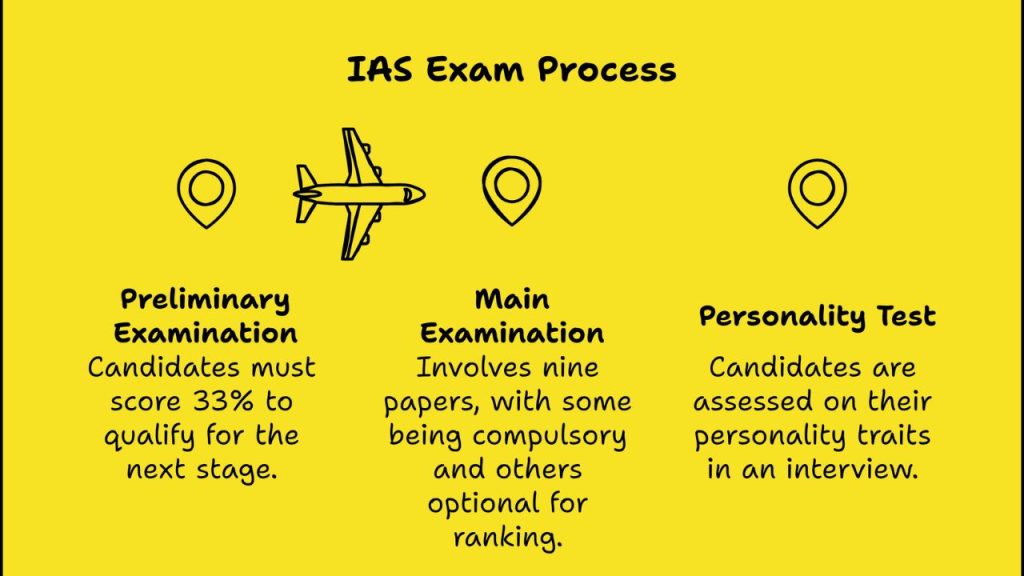
Preliminary Examination
UPSC prelims is the first stage of an exam and it is a little bit easy for students as it is qualifying. A candidate has to score a minimum mark of 33 percent in this paper and the candidate is eligible to qualify for the next stage of the IAS exam.
An extra time of 20 minutes for each paper is given to blind candidates in the IAS prelims exam.
It is mandatory for the candidates to appear in both the papers of the prelims exam as it is used for the evaluation of students.
The marks scored by the candidates in the preliminary examination are not added in the final score. It is used only for a screening test where those candidates who are not securing the cut-off marks are eliminated from further exam process.
Main Examination
The second stage of the IAS Exam is the Mains Exam
The Mains exam is a written descriptive examination. The main exam comprises 9 papers. The 9 papers in IAS Exam (Mains) are as follows: Paper-A (Compulsory Indian Language); Paper –B (English) which are qualifying in nature, while the other papers like Essay, General Studies Papers I, II, III, and IV, and Optional Papers I and II are taken for the final ranking.
The candidates who cleared the cut-off marks in the IAS Mains exam will get a call letter or Email for the Personality Test which is the last stage of the IAS exam.
Personality Test (Interview)
Candidates who clear the Mains stage of the IAS exam with the required cut-off marks qualify for the final stage of the IAS exam i.e., the Personality Test or Interview round with the UPSC Board Members. The candidates who qualify for the final stage will be sent an e-summon by the Commission for a face-to-face discussion round with the board members. In this round, the board assesses the personality traits of the candidates and questions will be asked on their hobbies, current affairs, general knowledge, situation questions, etc. to evaluate if they are fit for a career in the civil services or not. The UPSC personality test will be held only in the UPSC Bhavan in New Delhi.
Recent Changes in the UPSC Exam Pattern for 2025
UPSC Prelims Exam Pattern of 2025
UPSC Prelims is the first phase of the UPSC CSE Exam. There are two papers in the UPSC prelims exam, General Studies-1 and General Studies-2, or CSAT. These prelim exams are conducted on the same day. CSAT Paper is a qualifying paper. Applicants must pass the CSAT with a minimum score of 33% to appear in the next stage of the UPSC exam. To achieve success in the first attempt a student must familiarize themselves with the UPSC Prelims Syllabus 2025
UPSC Prelims Negative Marking Rule
According to the UPSC exam pattern for the Prelims, each question on General Studies-1 is for two points, and each question on the CSAT paper is worth five points. In the UPSC, one-third of the marks allotted to such questions would be deducted. This means that there would be a negative marking of 0.66 in Prelims Paper 1 and the negative marking for the CSAT will be 0.83.
Any modifications in the syllabus or structure have a great impact on a student’s motivation during exams.
Main Examination
There are nine papers in the Main exam of UPSC, two of which are qualifying in nature, and the remaining seven are meant for the merit of a student. Four papers will be for General Studies, and two papers will be for the optional courses. Those students who pass the preliminary exam are qualified for the main examination. For a better understanding of the subjects included in the main exam,
A student must sit in both qualifying and merit papers of the UPSC exam.
For the Mains exam, candidates are permitted to select an optional topic according to their choice and interest.
Interview Stage
After clearing the written examination, the candidate got a call letter for the Personality Test, in which most questions were based on topics of general interest. The interview aims to observe the examinee, if the candidate is suitable for the post selected by students, and whether they are eligible to tackle the problem in the future. According to the UPSC Paper Pattern, there will be a total of 275 points awarded for the interview phase. The final merit list will be created based on the candidate’s scores in the Mains and Interview.
Implications of the Changes
The changes in exam patterns affect a lot of students ‘ preparation strategies as they have to face new challenges during exams. They have to cover questions that might be asked by the examiner in the exam. They have to reschedule their syllabus and timetable structure to cope with the changes. They have to practice a lot to learn new topics so that that would not affect their merit score in the future or they can attempt exams in a calm way.
Preparation tips for UPSC
A student must Attempt mock tests, Practice answer writing, Be aware of the UPSC syllabus, and make notes of Current Affairs for IAS.
For UPSC Mains a student must continue, Reading texts, a student must solve previous years’ UPSC question papers, Start reading newspapers with consistency, practice essay writing, and follow the timetable.
Time management strategies to succeed in the UPSC exam
Here are some time management strategies and practice and revision techniques for the UPSC exam-
- A student must create a study plan. A student can use the UPSC syllabus as a roadmap in which they can prioritize subjects and topics according to exam patterns.
- A student must practice with mock tests as mock tests help students to understand the exam format and the knowledge they gain.
- A revision cycle plan helps a student to revisit each topic multiple times. This will boost their memory power.
- A student must take breaks and do their habitual work during study time which will help them to refresh their mind and concentrate on their study.
Conclusion
UPSC is the toughest exam in India as with power and reputation in society it gives many benefits to a student. This is the reason it is a dream of any Indian to crack it. To achieve success in the UPSC exam a student can use technology and online resources to stay updated on syllabi by UPSC and change their timetable accordingly. A student must adapt to the changes and maintain a focused preparation approach regarding their target goal. Allocation of time for revision helps a student to stay calm and composed during the exam. Regular practice of writing answers helps in Improving writing speed of a student. A student must Practice with the previous year’s question papers to know the important topics to be asked in the exam.

